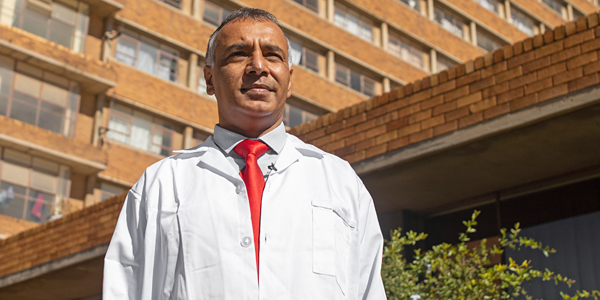New project will examine Covid-19 vaccine acceptance in southern Africa
- Wits University
A new project will examine Covid-19 vaccine acceptance in SA and Zimbabwe and recommend strategies to promote vaccination.
The project will aim to fill critical information gaps in South Africa and Zimbabwe.
The University of the Witwatersrand and its partners announced the launch of a new study on Covid-19 vaccine acceptance in South Africa and Zimbabwe, with the goal of better informing efforts to promote vaccination in the two countries.
The project is funded by Schmidt Futures, the Bill & Melinda Gates Foundation and Aspen Pharmacare.
Joining Wits University in the project consortium are Columbia University in the USA, RTI International, Charles River Medical Group in Zimbabwe, the Rhodes Trust based at the University of Oxford, the Atlantic Institute, and the Schmidt Science Fellows.
Together, this consortium comprises the Vaccine Information Network (VIN), part of the VacSafe Working Group at Columbia University.
VIN aims to increase COVID-19 vaccination rates through data-driven confidence building messages from trusted community leaders and partnerships with governments.
The study will be hosted in South Africa by the Wits Vaccines & Infectious Diseases Analytics Research Unit (Wits VIDA), directed by Professor Shabir Madhi, who is the Principal Investigator in South Africa.

Madhi says, “Wits VIDA welcomes the opportunity to host this critical and timeous study to promote vaccine uptake in South Africa and Zimbabwe. African countries increasingly bear the burden of SARS-CoV-2 infection due to both misinformation and access to life-saving vaccines. The study makes an important contribution to our unique African context and to saving lives through vaccination.”
Associate Professor Janan Dietrich will lead the study in South Africa, through a partnership between Wits VIDA and the African Social Sciences Unit of Research and Evaluation (ASSURE) – a new research syndicate co-founded by Dietrich and Dr Nellie Myburgh, via the Wits Health Consortium.

Dietrich says, “I am very excited to be doing this work through ASSURE, which aims to support health research through conducting African-led social and behavioural sciences studies. The VIN study is a timely social and behavioural sciences study that places people at the centre of local efforts to promote vaccination.”
Dietrich is director of bio-behavioural research at the Perinatal HIV Research Institute (PHRU) and Myburgh is Head of Anthropology at Wits VIDA.
The project will follow a three-phase approach in both countries, beginning with focus group discussions to understand the nature and drivers of vaccine hesitancy.
In the second phase, the research team will recruit and interview a cohort of 2,000 COVID-19 vaccine recipients three times over six weeks to understand the motivations, barriers, safety perceptions, side effects and other experiences of COVID-19 vaccination.
In the final phase, the researchers will draw on their findings to co-design a strategic communications framework with local influencers, including religious leaders, community leaders and media.
“The drivers of vaccine hesitancy vary from country to country and even locality to locality,” said Dr. Larry Stanberry, Associate Dean for International Programs and Director of the Programs in Global Health at Columbia University Vagelos College of Physicians and Surgeons.
“Without a better understanding of the local reasons behind vaccine hesitancy and how people overcome their hesitancy, it is challenging to build a strong local plan to promote vaccination.”
Dr. Tariro Makadzange, M.D., Ph.D., Founder and CEO of Charles River Medical Group in Zimbabwe added: “This project will equip governments and local influencers with the critical data and information needed to create effective messaging.”
Learn more about this project.
About Wits VIDA
The Vaccines and Infectious Diseases Analytics (VIDA) Research Unit of the University of the Witwatersrand is an internationally recognised, African-led research unit in the field of epidemiology of vaccine preventable diseases and clinical development of life-saving vaccines. Wits VIDA conducts cutting-edge medical research, with the objective of saving lives across Africa and low and middle-income countries (LMIC). Founded in 1995, the unit’s work informs local and global policy recommendations on infectious diseases and the use of next-generation and novel vaccines. For more information, visit https://wits-vida.org/
About Columbia University’s VacSafe Working Group
The Vaccine Safety and Confidence-Building Working Group (VacSafe WG) convened by Wilmot James PhD, Senior Research Scholar at Columbia University’s Institute for Social and Economic Research and policy (ISERP) and co-convened by Joshua Nott at Schmidt Futures, will catalyze and support projects that generate, scale and analyze actively-collected vaccine safety surveillance and pharmaco-vigilance data in Africa. For more information, visit https://vacsafe.columbia.edu/.

